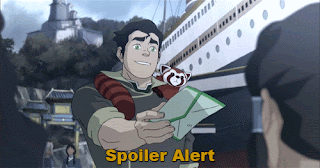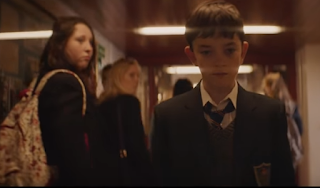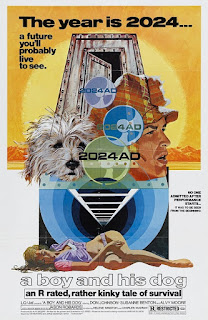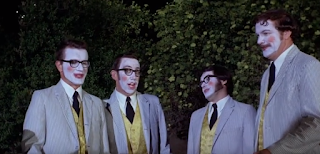Blood of Eden
Published: 2012Publisher: Audible
Author's Website
Format: Audiobook, Unabridged
Series: Blood of Eden
Narration by: Thérèse Plummer
Introduction
In a dystopian future, a disease called "Red Lung" wiped out most of the humans. Now, vampires reign and humans are used for their blood. Cities are walled and humans who do not feed the vampires--unregistereds--are unsupported and starving. Allie is unregistered, hating the vampires to her core, living with her small group of fringe scavengers to survive. In addition to vampires, there are rabids--crazed monsters that didn't quite become vampires in the turning process. During a scavenging outing gone terribly wrong, Allie has to make a terrible decision.
Eventually, all alone in the world, she tries to find a purpose. From a band of humans, she learns of Eden, a place free from vampires.
Protagonist
Allie is a rough scavenger. She talks back, is sarcastic, and wields a katana. She does have a nice side; teaching others to read, making sure Stick doesn't starve, and going out of her way to help even the people that hate her. She is definitely not passive and it is refreshing.
The Love Interest
I wasn't too attached to him. Everyone hates vampires without question, kind of like how everyone hates the pixies in Carrie Jone's Need series. You love someone, they hate what you are. At what point do you throw up your hands, call them a bigot, and tell them to save themselves? And Allie isn't a damsel in distress in this book. She has a sword and will kick butt. She does more than her share of saving others, all while hiding what she is.
Essay Topics
Discrimination (humans vs vampires OR vampires vs humans) would be a very easy one, and it can be paired with Wicked, Need, or pretty much any other YA paranormal book. You could also look at vampire depictions across different genres/publication dates/marketed audience. These vampires are ruthless monsters. Twilight, not so much. Interview with a vampire, they can be, but they are very Romanticized. Depending on the story, vampires represent many different types of real-life fears, and you can tie in some film clips, if you have to present the argument (the film rights have been sold, but we will probably have to wait a while before it is released).
 |
Stick.
Morgan has his stick.
Rafiki has his stick.
This Stick, is not good.
Second to Stick in the worst character award:
Ruth.
Final Thoughts
An interesting mix of paranormal and dystopian fiction with a female protagonist that can hold her own and vampires that don't suck (har-har). Julie Kagawa is a popular YA author, so I see no reason to exclude this book from a YA section. I hope to alternate between this series and the Immortal Game series by Ann Aguirre.
Second to Stick in the worst character award:
Ruth.
Final Thoughts
An interesting mix of paranormal and dystopian fiction with a female protagonist that can hold her own and vampires that don't suck (har-har). Julie Kagawa is a popular YA author, so I see no reason to exclude this book from a YA section. I hope to alternate between this series and the Immortal Game series by Ann Aguirre.






































